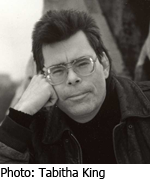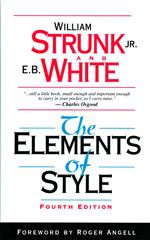Style Guidelines
Style is the way in which a person writes. It is how they put words together to create a rhythm with sentences and paragraphs. Writing is also an art. Like any art form, beauty is in the eye of the beholder. That is, there is no one way to write just as there is no one way to paint a picture. However, there is good writing and bad writing. In English, being understandable, specific, and brief is good writing.
There is no task that creates greater resistance (except a speech) than a writing assignment. To fill a blank page with words requires students to put to use most of the skills they have been practicing for years: organization, vocabulary, spelling, grammar, and thinking. To help students improve the quality of their writing in history, they should follow the Style Guidelines below.
Basic Rules
In formal writing such as a paper for a class, avoid using contractions. That is, words combined using the apostrophe (') such as can't, won't, we'd, I'm, they'd, haven't, etc.
| Avoid | Better |
|---|---|
| I'm serious, and I won't agree to their proposal. | I am serious, and I will not agree to their proposal. |
Avoid writing in the negative; write in the positive. Use the word "not" no more than a few times per page.
| Avoid | Better |
|---|---|
| He is not the person that we wanted to hire for the job. | We wanted to hire someone else for the job. |
| She did not like the taste of chocolate. | She disliked the taste of chocolate. |
Do not personalize formal writing. Write in the third person. Avoid words and phrases that refer to yourself or directly to the reader.
| Avoid | Better |
|---|---|
| I, me, my, you, your, we, us, our In my opinion I think I believe |
he, she, him, her, it, they, them | Avoid | Better |
| In my opinion, the authors of the stories imply that greed leads to wealth. | The authors of the stories imply that greed leads to wealth. |
| Sometimes you need to think before you leap into something new. | Sometimes people need to think before they leap into something new. |
Remove needless words. If you can write something with fewer words, use fewer words.
| Avoid | Better |
|---|---|
| I do not like going shopping based on the fact that I have no money. | I hate shopping when I am broke. |
| Sinclair believed that it was possible to build a large bridge across the river. | Sinclair believed he could build a bridge across the river. |
The most used verb in English—and the most irregular—is the verb to be (am, are, is, was, were, be, being, been). While using this verb is acceptable, avoid its use whenever possible. Without this verb, sentences generally become shorter, more direct, and more specific—the essence of good writing.
| Avoid | Better |
|---|---|
| Franklin was happy to work on his birthday. | Franklin enjoyed working on his birthday. |
| There were seventeen people who showed up at the baseball game. | Seventeen people showed up at the baseball game. |
| I am sure that there was plenty of food for the patrons. | I know the patrons had plenty of food. |
| Sammy and Bill were asleep during the lecture. | Sammy and Bill slept during the lecture. |
Use the active voice; avoid the passive voice when possible. In the active voice, the subject of the sentence is doing the action. In the passive voice, the action is occurring to the subject. The passive voice is generally created when using the verb "to be" and the word "by" is used or implied.
| Avoid | Better |
|---|---|
| The package was carried by the postal worker. | The postal worker carried the package. |
| Marsha was given a present. (by someone is implied in the sentence.) | Jill gave Marsha a present. |
Good writing is specific and clear. Replace general or vague words with specific details.
| Avoid | Better |
|---|---|
| She walked to her friend's house in the dark. | Stacey walked to Lisa's house at midnight. |
| The crowd was not pleased with the band’s performance. | The crowd booed during The Ravens’ performance. |
| Gwynne did not like the weather. | Gwynne shivered as the snow began to fall. |
| The house looked old and worn out. | The house had rotted wood, peeled pant, and a missing door. |
The first time a name is used, give the first and last name of that person. Afterwards, refer to the person by their last name and by pronouns. It is acceptable to use a person’s full name later for emphasis or to remind the reader of their first name.
In the summer of 1776, Thomas Paine joined the Continental Army. He watched as Washington and the army retreated against the more powerful British army and navy. As 1776 drew to a close, the British seemed on the verge of victory. In response, Paine began writing a series of articles soon known as The Crisis. He wrote, “These are the times that try men's souls.” He discussed patriotism and the need to continue the struggle for liberty. Thomas Paine’s articles boosted Patriot morale and helped maintain colonial support for the war effort.


